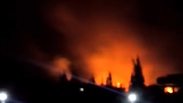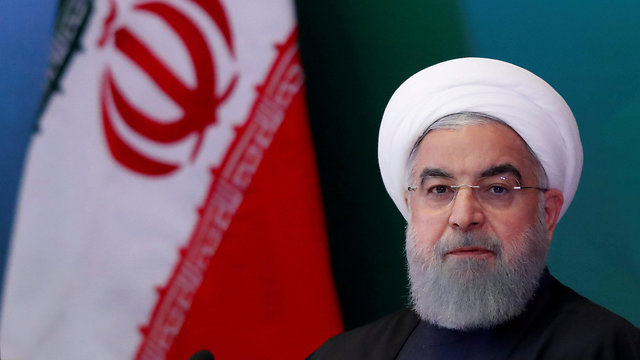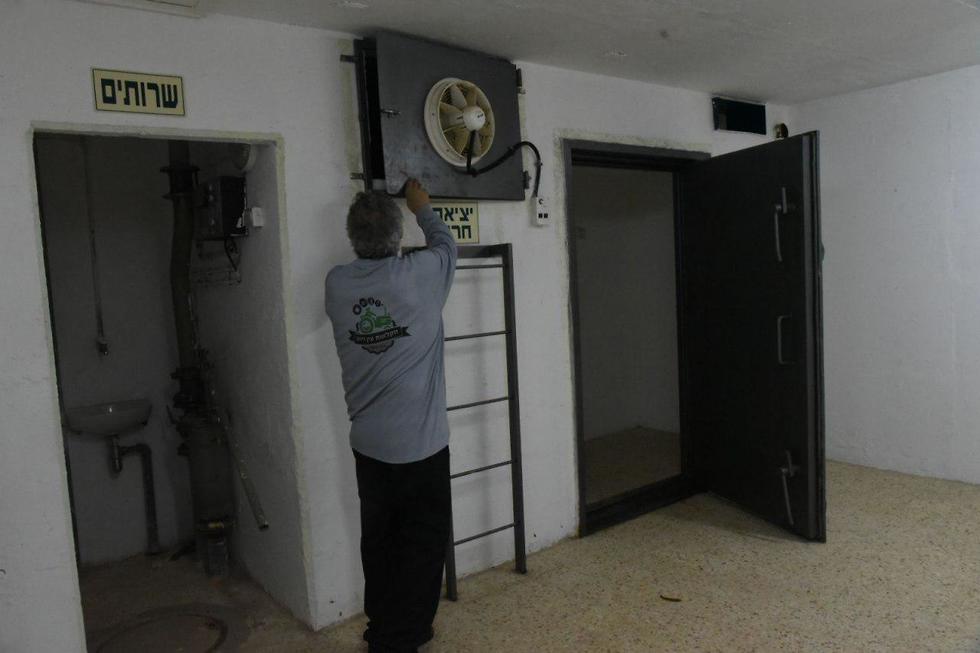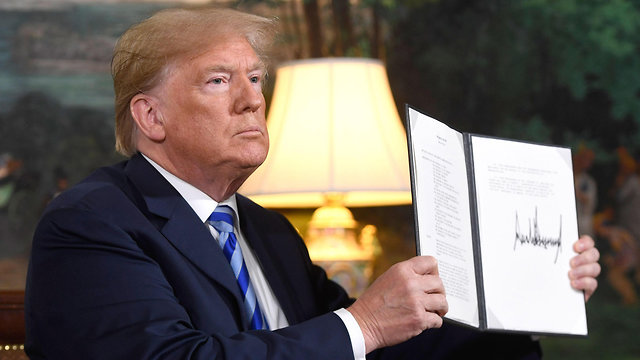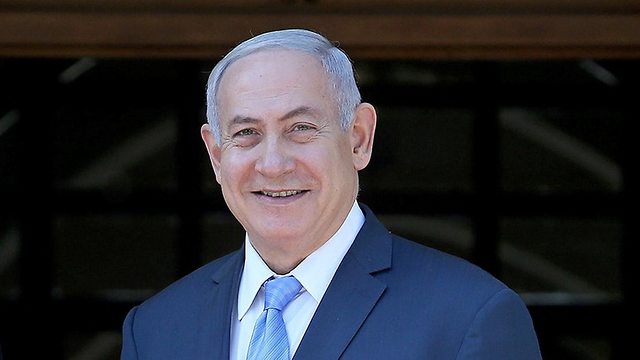
Israel’s message to Tehran: An unusual IDF order and a ‘preventive strike’
Analysis: The alleged Israeli attack on a base used by Iranian militias near Damascus, and the earlier order to open bomb shelters in the Golan Heights, may have been an attempt to make it clear to Iran’s moderate camp, led by President Rouhani, that the Revolutionary Guards are adopting a policy that could harm their country at this sensitive time.
Furthermore, there is concern the Iranians may try to attack targets on the ground through their militias, and even communities in the Golan Heights. Israel is thwarting these intentions both through the media and, according to reports, through preventive strikes.
We can also assume that the targets of the strike were missile depots and missile launchers, which the Iranians took out of hiding and were planning to use. Israel spotted the activity—and attacked.
Earlier Tuesday evening, the IDF issued an unusual order to open bomb shelters in the Golan Heights due to “abnormal movements” spotted among the Iranian forces in Syria. It’s quite possible that the purpose of the public order, which was unusual by any standard, was to make it clear to the moderate camp in Iran, led by President Hassan Rouhani, that the Revolutionary Guards are adopting a policy that could harm Iran at this time. After all, Iran needs every bit of sympathy and aid in Europe and Russia, and offensive actions against Israel could worsen its situation in the international arena and reinforce US President Donald Trump’s claims.
The Iranian forces and the militias operating on its behalf in Syria are relatively weak and unable to cause real damage in Israel. Hezbollah won’t operate from Lebanon because the Iranians are interested in keeping the Shiite organization as a strategic arm in case Israel attacks their nuclear facilities.
It’s reasonable to assume, therefore, that Qassem Suleimani, the Revolutionary Guards’ strongman and head of the Quds Force, won’t issue an order to Hezbollah leader Hassan Nasrallah to activate his huge missile arsenal simply for the sake of revenge.
In any event, the IDF has taken every required measure, including advancing missile-interception batteries and unmanned aircraft, to thwart any attempt made by the Revolutionary Guards to target Israeli territory. IDF officials are saying that Israel’s response to any Iranian attack will be extremely harsh, but are hoping there will be no need for such a response.
The IDF’s announcement on the security measures it is taking should deter the Iranians from making a move that would escalate the situation and harm the Syrian regime as well, and this is something Prime Minister Benjamin Netanyahu will make clear to Russian President Vladimir Putin in their meeting in Moscow on Wednesday morning.
Trump didn’t burn all bridges
In the more important international arena right now, President Trump pulled his country out of the nuclear agreement without letting anyone off easy—neither the Iranians nor the Europeans, the Russians or the Chinese. If and when the agreement’s suspension takes effect in 180 days, European, Chinese and Russian companies trading with Iran won’t be able to trade with the US or transfer funds as part of the sanctions.
But, and this is a big but, Trump left a wide window open for negotiations. He made it clear that if the Iranians are willing to make amendments to the existing agreement, he would be willing to call off the American withdrawal.
He said he was referring to amendments to four problematic articles: the need to place serious restrictions on the development of medium- and long-range ballistic missiles; changing the “sunset provisions,” under which Iran would be able to enrich as much uranium as it wants as fast as it wants after 15 years; tightening the supervision over the development of nuclear warheads for missiles; securing a commitment from Iran to stop aiding terror and guerilla organizations led by Hezbollah, Hamas, the Palestinian Islamic Jihad and the Houthis in Yemen.
Trump failed to clarify how he wants to fix the flaws in the existing agreement. He is leaving it to the Europeans, who will conduct the negotiations if the Iranians agree to renew the talks.
Trump mentioned the agreement with North Korea in his speech. He wanted to stress that his strict policy vis-à-vis Pyongyang proved itself and that there is good reason to believe that, eventually, the Iranians will seek a compromise too.
Trump reiterated that North Korea was ready for negotiations and a reconciliation with the US, despite his strict policy. That’s his answer to all those who criticized him at the time, claiming he was leading to war in the Korean Peninsula, and are now accusing him of leading to an escalation with Iran.
Speaking immediately after Trump, President Rouhani provided an indirect confirmation of this assumption, saying that Iran would stay in the nuclear deal even without Washington. Rouhani warned, however, that Iran would renew its uranium enrichment if the talks failed. In other words, Iran is prepared to hold talks with the Europeans and other elements that will try to mediate and reach new understandings which may comply with the American demands.
The American withdrawal from the nuclear agreement and the effect of Trump’s decision aren't a done deal. It’s just the beginning. Netanyahu, in any event, scored a major achievement, as its seems Trump completely adopted his stance on the nuclear agreement with Iran and even relied on the achievements of the Mossad, which stole part of the Iranian nuclear archive to establish Trump’s accusations that the nuclear agreement is based on a lie and should therefore be terminated.













